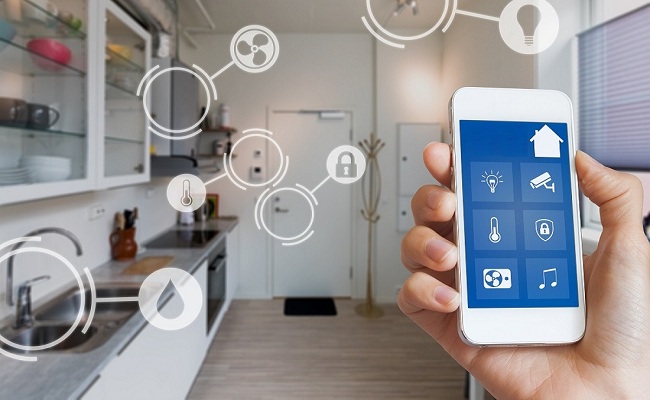Artificial Intelligence (AI) has emerged to be the revolutionary technology, transforming various different aspects of our lives. From virtual assistants to recommendation systems, AI has found its way into our smartphones, enhancing their capabilities and making them more intelligent than ever before. As we move forward, AI will continue to integrate with smartphones, bringing forth exciting possibilities and shaping the future of mobile technology. Let's explore some key ways in which AI will further integrate with smartphones in the coming years.
AI Capabilities of Today’s Phones
Smartphones today possess remarkable AI capabilities that have transformed the way we interact with our devices. Powered by sophisticated AI algorithms, they can recognize and interpret voice commands, allowing us to interact with virtual assistants like Siri, Google Assistant, and Alexa. These virtual assistants can answer questions, provide recommendations, schedule appointments, and even control smart home devices. Additionally, smartphones employ AI for advanced camera features such as portrait mode, scene detection, and image optimization, enhancing our photography experience.
AI-driven recommendation systems analyze our preferences, search history, and behavior patterns to suggest personalized content, apps, and products. Furthermore, AI algorithms contribute to improved security through facial recognition and biometric authentication, safeguarding our data and privacy. With their current AI capabilities, new and refurbished smartphones have become intelligent companions that simplify tasks, provide valuable information, and enhance our overall mobile experience.
Enhanced Personalization
AI has already enabled smartphones to personalize user experiences based on individual preferences, behavior patterns, and location data. However, future advancements in AI will take personalization to a whole new level. By analyzing vast amounts of data, including social media interactions, online browsing habits, and even biometric information, smartphones will gain a deeper understanding of users' needs and preferences. This will allow them to provide highly tailored recommendations, content, and services, creating a truly personalized mobile experience.
Smarter Voice Assistants
Voice assistants like Siri, Google Assistant, and Alexa have become increasingly popular, but they will become even smarter and more capable in the future. AI algorithms will enable voice assistants to better understand natural language and context, making interactions more intuitive and human-like. They will be able to carry out complex tasks, anticipate user needs, and even engage in meaningful conversations. With increased integration of AI, voice assistants will become indispensable companions, helping us navigate and control various aspects of our lives through smartphones.
Advanced Camera Capabilities
Smartphone cameras have come a long way, thanks to AI-powered image processing algorithms. In the coming years, AI will further enhance camera capabilities, enabling smartphones to capture stunning photos and videos effortlessly. AI algorithms will improve image recognition, object tracking, and image stabilization, resulting in sharper images and smoother videos. Additionally, AI will facilitate real-time scene detection, optimizing camera settings automatically for different scenarios. This will make it easier for users to take professional-quality photos and share memorable moments with friends and family.
Augmented Reality (AR)
AR technology has gained popularity through smartphone apps like Snapchat with added features and Pokémon Go. In the future, AI will play a significant role in advancing AR experiences on smartphones. AI algorithms will enable smartphones to accurately map and understand the surrounding environment, identifying objects and surfaces in real-time. This will lead to more immersive AR applications, such as interactive gaming, virtual try-on for shopping, and informative overlays for navigation. With AI integration, smartphones will become powerful AR devices, blurring the lines between the physical and digital worlds.
Enhanced Security and Privacy
Security and privacy are crucial considerations in the digital age. AI will continue to play a vital role in strengthening smartphone security measures. Facial recognition, fingerprint scanning, and voice authentication powered by AI algorithms will become more sophisticated, making smartphones even more secure and resistant to unauthorized access. AI will also contribute to better privacy protection by analyzing user behavior patterns and detecting potential security breaches or data leaks.
Intelligent Battery Management
Battery life remains a significant concern for smartphone users. AI will address this issue by optimizing battery management. Machine learning algorithms will analyze usage patterns, app behaviors, and system configurations to intelligently manage power consumption. AI will predict usage patterns and dynamically adjust power allocation, ensuring efficient battery utilization without compromising user experience. This will result in longer battery life and improved overall performance.
Contextual Awareness
AI integration will enable smartphones to gain contextual awareness, allowing them to adapt to users' surroundings and provide relevant information and services. By analyzing sensor data, location information, and user preferences, smartphones will anticipate users' needs and offer proactive assistance. For example, a smartphone might provide traffic updates, suggest nearby restaurants based on personal preferences, or offer reminders based on the user's calendar and current location. This contextual awareness will make smartphones indispensable companions, catering to users' needs seamlessly.
The integration of AI with smartphones holds immense potential to transform how we interact with our mobile devices. With enhanced personalization, smarter voice assistants, advanced camera capabilities, augmented reality experiences, improved security, intelligent battery management, and contextual awareness, the future of smartphones looks promising. As AI continues to evolve and integrate further, we can expect smartphones to become even more intelligent, intuitive, and indispensable companions in our daily lives.
